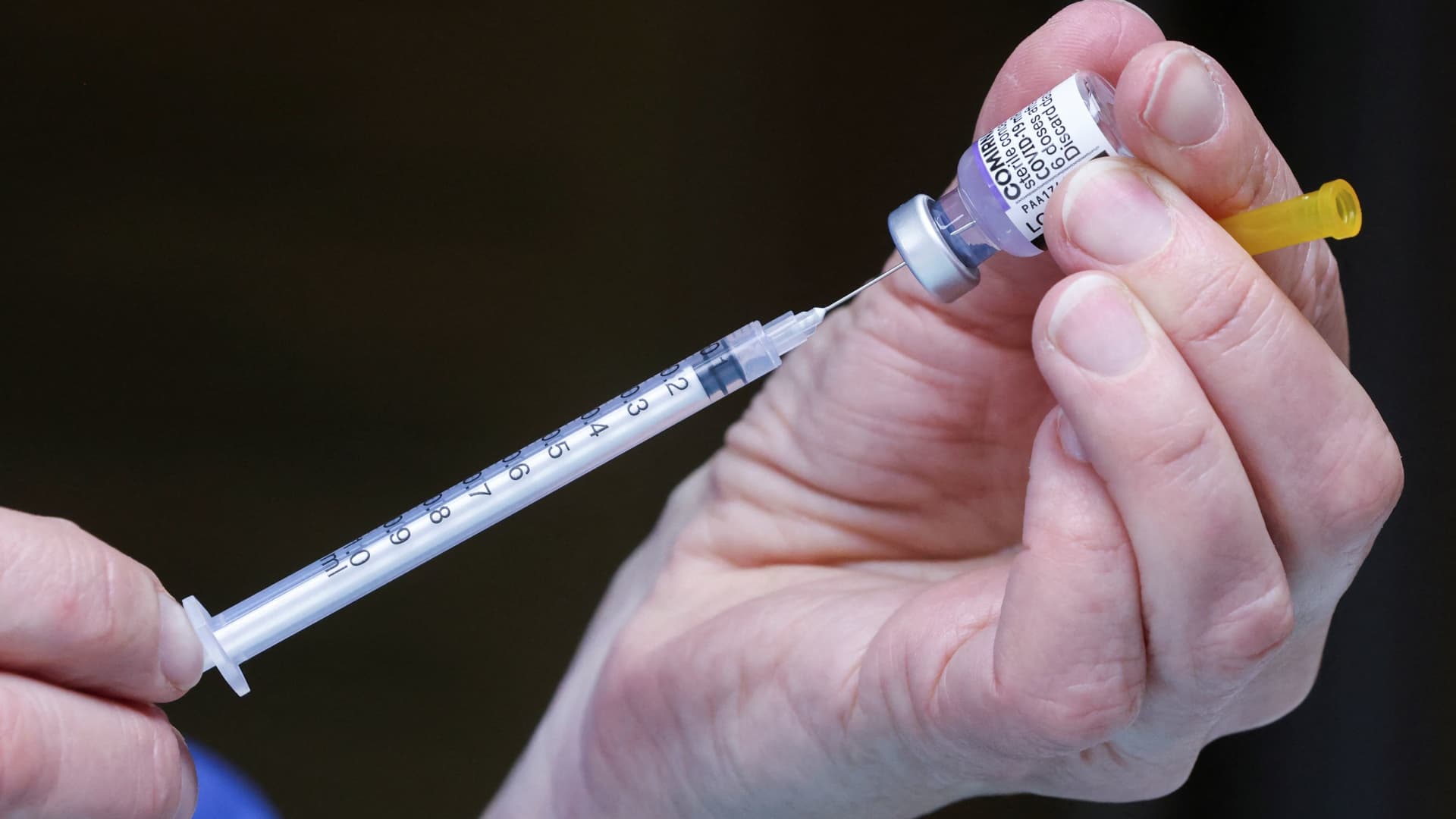
If you already got your omicron-specific Covid booster, you might have experienced some side effects. Maybe even ones that were more intense than your previous shot.
But there's no need to worry: Experts and new data say the new shots appear to work — regardless of whether you experience moderate, mild or no side effects at all.
"Don't focus too much on side effects, because I really think that the main objective here is to get people to be protected. So focus on that benefit of the new vaccines," Dr. Yvonne Maldonado, a professor of pediatric infectious diseases at Stanford University's School of Medicine, tells CNBC Make It.
The new boosters gained approval from the U.S. Food and Drug Administration and the CDC before they finished clinical trials. But newly released data from Pfizer and BioNTech's ongoing clinical trial gives a first glimpse of how well its new shots work on humans, showing that the new boosters generated a strong immune response against omicron's BA.4 and BA.5 subvariants.
About 11.5 million Americans have rolled up their sleeves to get the booster since they were first sent out at the beginning of September, according to the latest data from the Centers for Disease Control and Prevention. More Americans could follow: Roughly a third of U.S. adults say they've already gotten one or intend to "as soon as possible," according to a Kaiser Family Foundation poll released Sept. 30.
Here's what you need to know about the protection the new boosters provide, and where side effects fit into the equation:
The new booster appears to give you protection
Pfizer and Moderna's redesigned shots are bivalent, meaning they're tailored to the original Covid strain and omicron BA.4 and BA.5. All Americans ages 5 and older are eligible for one if they've completed their primary vaccination series.
Like previous Covid vaccines, the new boosters are designed to help you fight the virus by triggering an immune response in your body. When you get a vaccine, your immune system recognizes it as something foreign because it mimics a Covid infection without causing the "full-blown sickness," Maldonado says.
Your immune system responds by producing an arsenal of weapons — including antibodies, memory B cells and T cells — that work together to hunt down the "foreign object" and remember how to fend it off in the future, she adds.
Pfizer says its clinical trials were successful in inducing that immune response: A week after injection, participants had higher levels of antibodies against BA.4 and BA.5 in their blood than they did pre-injection. The drugmaker didn't specify how much higher those antibody counts were, but said it expects to release data measuring antibody levels one-month post-booster "in the coming weeks."
Such data might better measure the full protection Pfizer's new booster can provide against omicron's subvariants. Covid vaccines typically take two to three weeks to fully ramp up your immunity, which can help your body stop an infection from happening or keep it from progressing to severe disease.
"We know the data isn't complete, but it's also reassuring that after seven days you're already seeing an increase in antibodies," Maldanado says. "The response is very consistent with what we've seen in the past with other vaccines."
What does it mean if your side effects are more intense than others?
Side effects — in this case, the now-familiar set of muscle aches, fatigue, headaches and more — are a natural part of our immune response to a vaccine, Maldonado says. Clinical trials on earlier versions of bivalent boosters targeting omicron's BA.1 subvariant found that most participants experienced "mild" side effects, with much smaller percentages reporting "moderate" or "severe" ones.
Out in the real world, the severity seems to be "kind of a mixed bag," Maldonado says: Some people may have a worse, similar or more mild experience compared to their prior vaccine doses. "There's going to be some risk of side effects. For most people, you're going to feel something, but that doesn't mean vaccines aren't safe or won't protect you," she adds.
Dr. Peter Chin-Hong, an infectious disease professor from UC San Francisco, says he certainly felt some "adverse side effects" after he received his updated booster. He notes that he got a flu shot at the same time, and while the side effects from both shots are nothing new, he suggests they may have "conflated" to cause a more an intense experience for him.
Some studies show that the chances of experiencing side effects after receiving both shots at the same time are similar or only slightly higher than when receiving a Covid vaccine alone. So, there's really no concrete explanation for cases where your side effects from the new booster are more or less severe than others.
But you shouldn't worry, emphasizes Dr. Helen Chu, an assistant professor of infectious diseases at the University of Washington: Your side effects don't correlate with how much protection a Covid shot gives you. Having mild or moderate side effects doesn't mean you're mounting a stronger immune response than people with no side effects, she says.
"You're still going to have a nice rise to your antibody levels, you're still very much protected either way," Chu says.
Sign up now: Get smarter about your money and career with our weekly newsletter
Don't miss:
Health - Latest - Google News
October 15, 2022 at 08:00PM
https://ift.tt/q8fmJQM
Omicron-specific Covid boosters appear to work well, new data says—regardless of the side effects you experience - CNBC
Health - Latest - Google News
https://ift.tt/bvNFBID
Bagikan Berita Ini














0 Response to "Omicron-specific Covid boosters appear to work well, new data says—regardless of the side effects you experience - CNBC"
Post a Comment